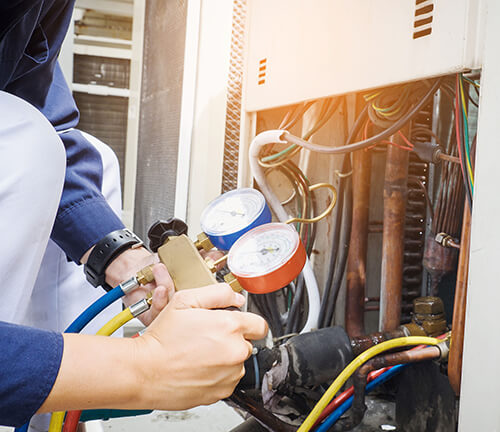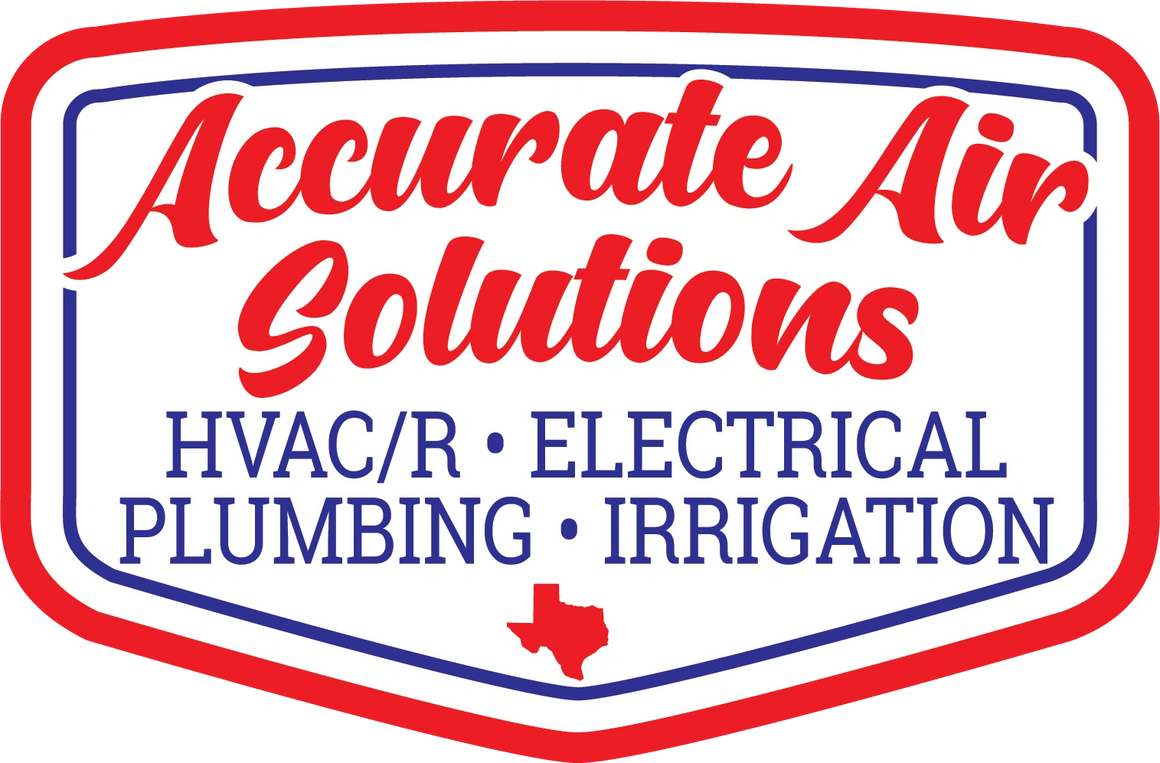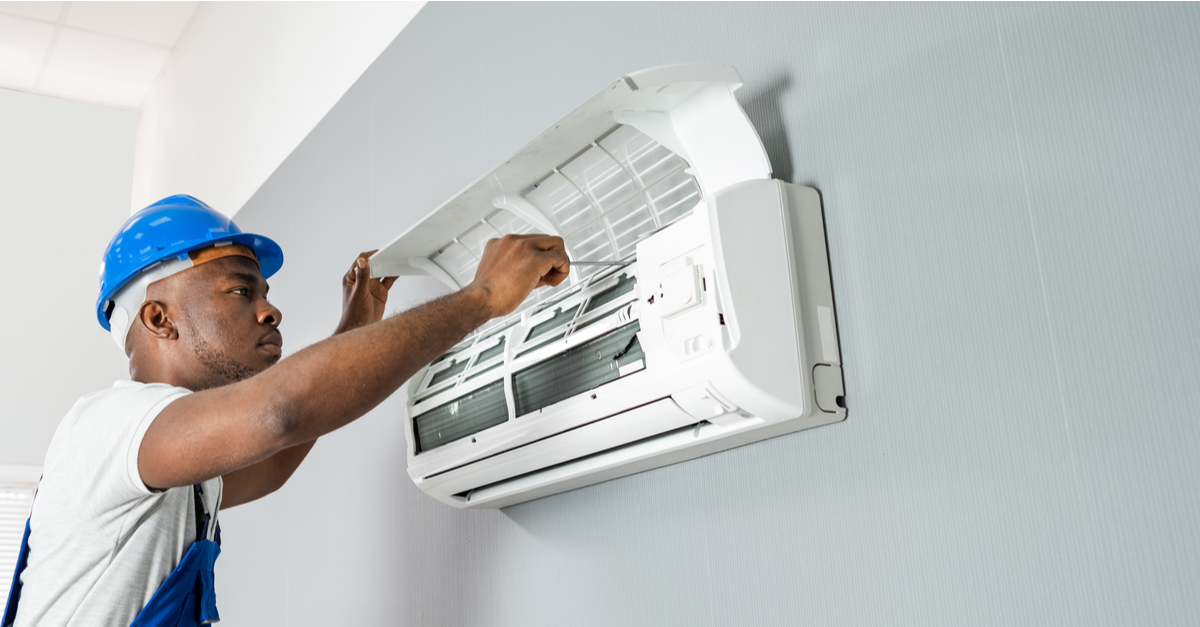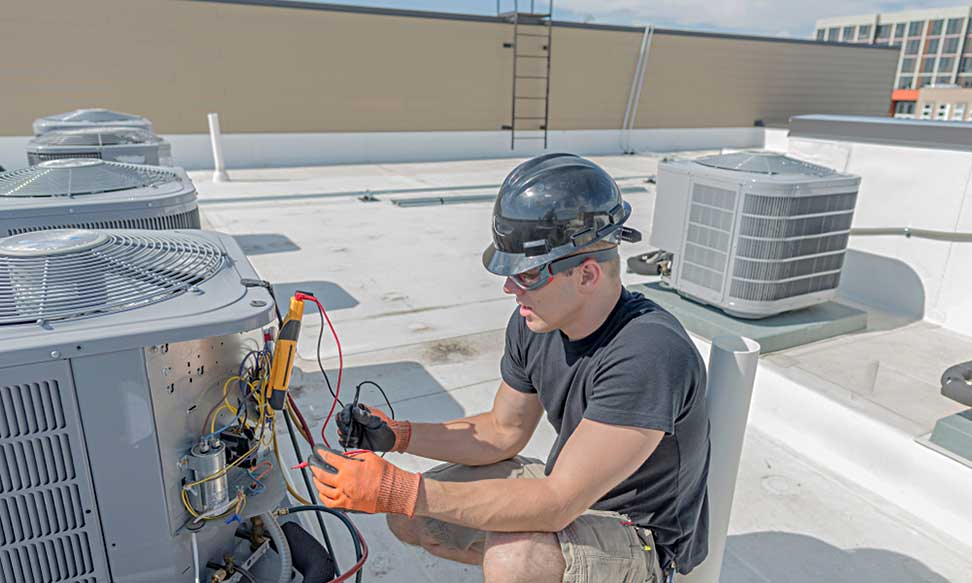The Value of Cooling And Heating Setup: Secret Factors To Consider for a Comfy Indoor Environment
The installment of an A/c system is an important component in attaining an energy-efficient and comfortable interior environment. Variables such as the suitability of the system for specific structure needs, proper sizing to circumvent inadequacies, and the experience of professionals for a quality setup play critical functions. The adoption of innovative technologies can dramatically enhance system efficiency.
Choosing the Right System

When selecting an a/c system, it is critical to review the ability called for to properly warmth or cool down the area without straining the system, which can bring about increased wear and operational costs. Consulting with a professional heating and cooling contractor can provide valuable insights right into picking a system that straightens with both the building style and the expected usage patterns of the structure.
In addition, taking into consideration the integration of wise innovation can improve system management and surveillance, providing higher control and possible expense financial savings. By carefully examining these variables, one can make sure the selection of a heating and cooling system that not just satisfies immediate needs however also adds to long-lasting operational sustainability and passenger comfort.
Recognizing Energy Efficiency
Recognizing energy performance is necessary when thinking about a HVAC installment, as it directly influences both the environmental impact and the operational costs of the system. High-efficiency cooling and heating systems are developed to use less power to accomplish the same degree of convenience as much less reliable versions, thus decreasing utility bills and advertising sustainability. The effectiveness of a HVAC system is commonly suggested by scores such as SEER (Seasonal Power Efficiency Proportion) for air conditioners or AFUE (Annual Gas Application Efficiency) for heating systems. Greater rankings signify greater effectiveness and lowered power usage.

Investing in an energy-efficient HVAC system not just translates to set you back savings but additionally contributes favorably to environmental preservation by reducing greenhouse gas emissions. In addition, numerous territories use incentives or refunds for the installation of high-efficiency systems, better improving their economic charm.
When evaluating energy performance, think about innovative functions such as variable rate motors, wise thermostats, and zoning capabilities. These advancements enhance the system's capability to adjust to varying need, thereby enhancing power use. It is vital to consult with a/c specialists who can supply understandings into the most effective alternatives tailored to certain environment conditions and usage patterns, making certain maximum effectiveness and convenience.
Relevance of Proper Sizing

On the other hand, an undersized cooling and heating system will certainly struggle to get to the preferred temperature level, particularly during severe weather. This can lead to continuous procedure, leading to greater energy expenses and potential getting too hot of system components. In addition, inadequate sizing can bring about inconsistent temperature level distribution, triggering particular areas blog here of a structure to be too cozy or also great.
To attain the appropriate sizing, a thorough tons estimation is important. This entails assessing different variables such as the building's square video footage, insulation degrees, window types, and neighborhood environment conditions. By precisely establishing the home heating and cooling demands of a space, heating and cooling specialists can advise systems that guarantee effective procedure, lowered energy consumption, and improved interior convenience.

Ensuring Quality Installation
A seamless HVAC installation is the cornerstone of a system's long life and efficiency. Making certain top quality setup includes precise attention to detail, adherence to sector requirements, and utilizing competent experts. The process starts with picking a knowledgeable and licensed cooling and heating service provider. This expert ought to possess comprehensive understanding of diverse systems and be adept at assessing the details requirements click this site of the building.
Correct setup surpasses plain placement of tools. It involves specific calibration to guarantee optimal air flow, efficient energy intake, and uniform temperature level distribution. This consists of accurate ductwork setup, ensuring connections are secure and leak-free, which is critical for preserving system performance and indoor air top quality.
Furthermore, the application of advanced diagnostic devices during setup can identify potential problems early, protecting against costly repair services and extending the lifespan of the system. The specialist should also make sure that all parts work and that the system adheres to regional structure codes and regulations.
Routine Maintenance Practices
When the structure for a high-performing cooling and heating system is developed via top quality installment, the emphasis must move to regular maintenance techniques to make certain ongoing effectiveness and dependability. Routine maintenance not just expands the life expectancy of the system however also enhances interior air high quality, decreases energy intake, and protects against expensive repairs. Important upkeep jobs include on a regular basis transforming air filters, cleaning up evaporator and condenser coils, and examining the system for obstructions or leaks.
This straightforward job can dramatically improve air circulation and system effectiveness. In addition, professional specialists need to examine the system every year, checking for refrigerant degrees, electric connections, and general system efficiency.
Focus to ductwork is also important; securing and cleaning ducts consistently prevents air loss and contamination. Executing an upkeep timetable ensures that minor problems are attended to prior to they rise, safeguarding here are the findings the system's operational integrity. By adhering to these maintenance methods, home owners can maximize their HVAC system's functionality and preserve a comfortable indoor atmosphere year-round.
Final Thought
By picking a suitable system customized to particular building requirements, understanding energy efficiency, and guaranteeing right sizing, ineffectiveness can be decreased. The participation of experienced professionals warranties quality setup, while the integration of sophisticated modern technologies boosts system performance and surveillance.
Several kinds of HVAC systems are offered, consisting of split systems, crossbreed systems, duct-free systems, and packaged heating and air systems, each with unique benefits and constraints.
Understanding energy performance is necessary when taking into consideration a Heating and cooling installment, as it directly impacts both the ecological impact and the functional costs of the system. The efficiency of a Heating and cooling system is typically indicated by scores such as SEER (Seasonal Energy Performance Proportion) for air conditioners or AFUE (Annual Gas Usage Performance) for furnaces (Electrician in Brownwood TX).When the foundation for a high-performing HVAC system is developed with high quality installment, the focus should move to normal maintenance techniques to make certain ongoing performance and integrity. Additionally, specialist specialists should evaluate the system annually, examining for refrigerant levels, electric links, and overall system performance